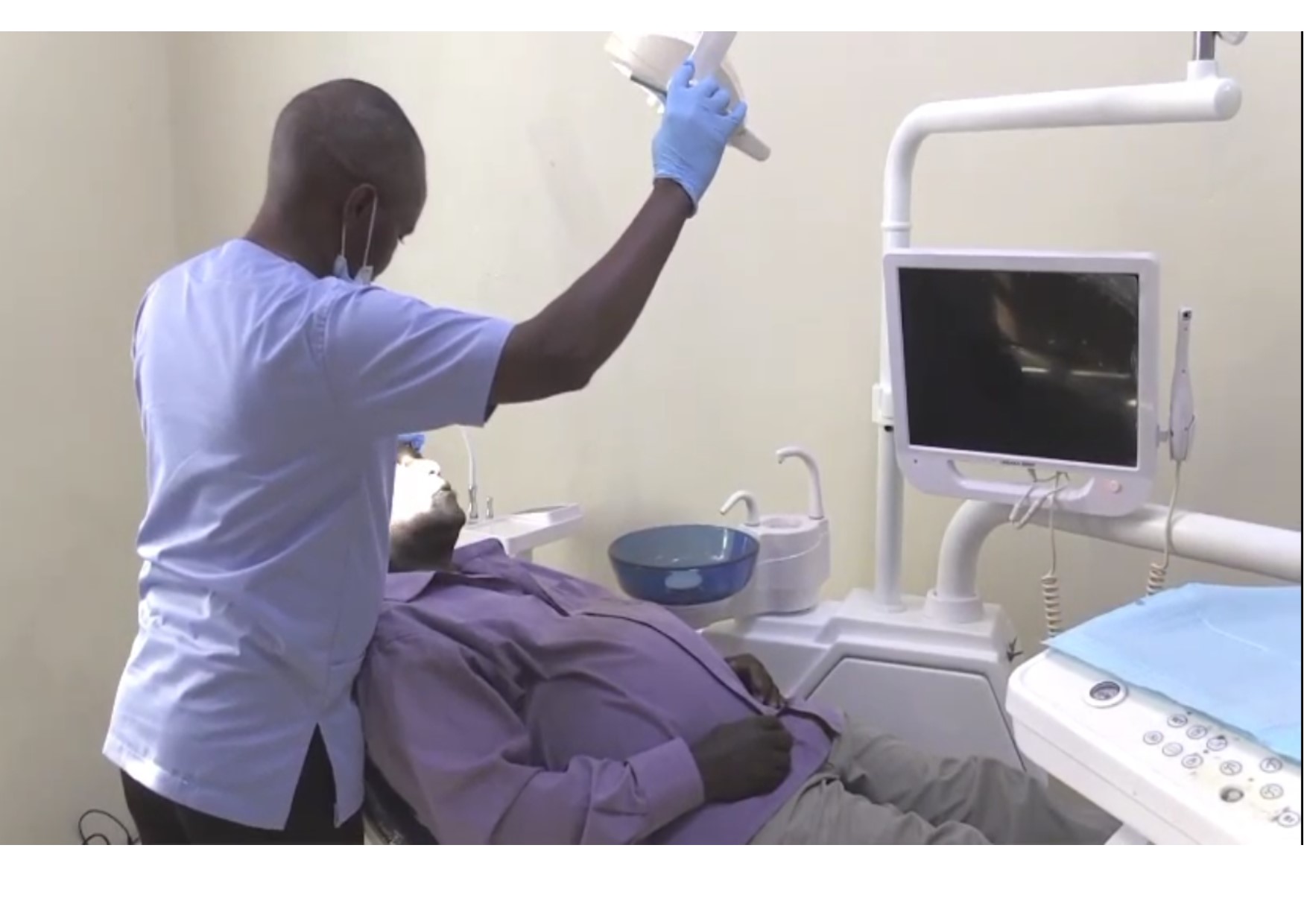
 Dr. Daniel Chebyegon, a dental specialist based in Narok, attends to a patient at his facility./KNA
Dr. Daniel Chebyegon, a dental specialist based in Narok, attends to a patient at his facility./KNATwo to three out of every ten residents in Narok County are affected by dental fluorosis, a condition primarily caused by the consumption of water with high fluoride content.
This condition, which results in the discolouration of teeth, is particularly prevalent among children.
According to Dr. Daniel Chebyegon, a dental specialist based in Narok, the condition is especially common in communities living around Siayabei, Naireki Enkare and Suswa, where fluoride levels in borehole water are notably high.
"Dental fluorosis occurs during the early stages of tooth development, typically in childhood, when teeth are still forming,” Dr. Chebyegon explained.
“Fluoride from borehole water interferes with the enamel, turning teeth from their natural white colour to yellow or brown. Adults are less likely to be affected as their teeth have already fully developed,” he added.
Dr. Chebyegon noted that the condition is preventable through the use of treated or filtered water, which contains reduced fluoride levels.
He emphasized the importance of public awareness and access to safe drinking water in combating fluorosis.
Dr. Chebyegon outlined two main approaches for the treatment for dental fluorosis, depending on the severity of the condition.

The first is teeth whitening or bleaching, a cosmetic procedure that lightens tooth colour by targeting internal or external stains on the enamel.
While generally safe, the procedure may result in temporary tooth sensitivity or gum irritation.
“Professional whitening, however, is closely monitored and typically poses minimal risks,” he added.
In more severe cases, dental crowns may be necessary. Crowns are used when discoloration is too extensive for bleaching. They act as caps that cover the damaged tooth and can be made from materials such as metal or porcelain,” Dr. Chebyegon said.
The cost of a crown ranges from approximately Sh10,000 in public clinics to between Sh25,000 and Sh40,000 in private facilities, depending on the materials used.
Porcelain, known for its durability and natural appearance, is the most expensive option.
The Dental Specialist added that with proper care, crowns can last between 10 to 30 years.
“Unlike whitening procedures, crowns do not usually cause sensitivity issues and provide a more permanent solution,” he said.
Dr. Chebyegon also urged the public to adopt better oral hygiene practices.
“People should brush their teeth at least twice daily, especially after meals, and avoid sugary foods that promote decay,” he advised, adding, “It’s also important to have dental checkups at least twice a year to monitor oral health,”.
Meanwhile, there is need for public health campaigns to promote awareness about fluoride-related dental issues and the importance of using safe water sources.








